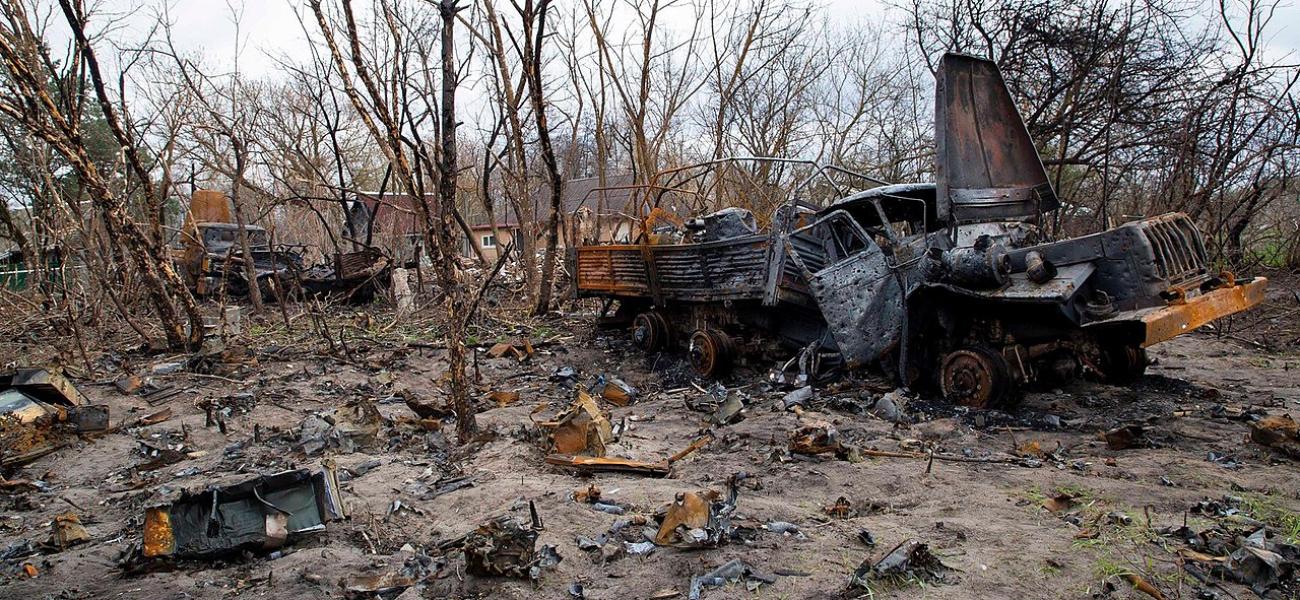
Russia and Ukraine Have Incentives to Negotiate. The U.S. Has Other Plans
February 07, 2023
Christopher Caldwell
This is a summary of an article originally published by The New York Times.
The author, the contributing Opinion writer Christopher Caldwell, writes:
- “The United States’ recent promise to ship advanced M1 Abrams battle tanks to Ukraine was a swift response to a serious problem. The problem is that Ukraine is losing the war … because the war has settled into a World War I-style battle of attrition, complete with carefully dug trenches and relatively stable fronts.”
- “Such wars tend to be won … by the side with the demographic and industrial resources to hold out longest. Russia has more than three times Ukraine’s population, an intact economy and superior military technology. At the same time, Russia has its own problems … Both sides have incentives to come to the negotiating table.”
- “The Biden administration has other plans. It is betting that by providing tanks it can improve Ukraine’s chances of winning the war. In a sense, the idea is to fast-forward history, from World War I’s battles of position to World War II’s battles of movement … But the Biden strategy has a bad name: escalation. Beyond a certain point, the United States … is replacing Ukraine as Russia’s main battlefield adversary. It is hard to say when that point will be reached or whether it has been already.”
- “In an age of smart devices, robotics and remote control, the United States’ involvement in the war has always been greater than it appeared. ... Most of the new weapons’ destructive power comes from their being bound into an American information network, a package of services that keeps working independently of the warrior and will not be fully shared with the warrior. So the United States is participating in these military operations at the moment they happen. It is fighting.”
- “We should not forget that, whatever values each side may bring to it, this war is not at heart a clash of values. It is a classic interstate war over territory and power, occurring at a border between empires. In this confrontation Mr. Putin and his Russia have fewer good options for backing down than American policymakers seem to realize, and more incentives to follow the United States all the way up the ladder of escalation.”
Read the full article at The New York Times.
Author
Christopher Caldwell
Christopher Caldwell is the contributing Opinion writer at The New York Times.
The opinions expressed herein are solely those of the author. Photo shared in the public domain.
Click to Subscribe
Russia Matters offers weekly news and analysis digests, event announcements and media advisories.
Choose and sign up here!
Recent Analysis
Personnel Stagnation to Splinter Putin Elite With Battle of Lost Generations
April 19, 2024
Andrey Pertsev
Recent Posts
Mitter, Wishnick: Alignment, Not Alliance for Russia-China Relationship
April 18, 2024
Conor Cunningham
Polls Show Record Low Number of Russians Willing to Permanently Move Abroad
April 12, 2024
Simon Saradzhyan
Fiona Hill Delivers Insights on Russia's Perennial Role in Global Geopolitics
March 21, 2024
Conor Cunningham
How Much Would 0.25% of Ramstein Group Members’ GDP Really Raise for Ukraine?
March 07, 2024
Conor Cunningham and RM Staff

